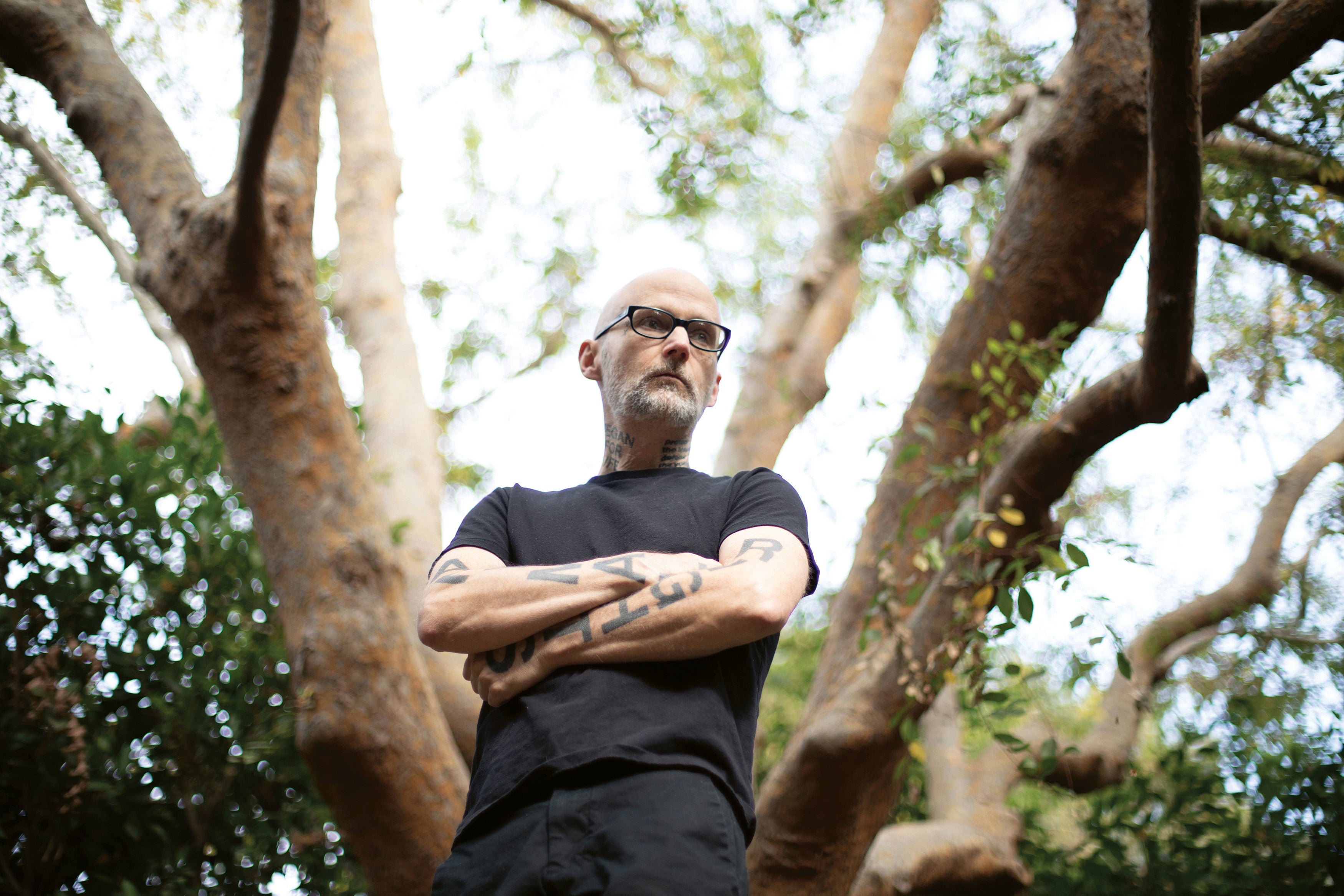Moby review, Reprise: Reworked songs are a graceful opportunity to take stock
The original tracks felt as though they were recorded under the adrenalin of artificial lights, but these reworkings are flooded with daylight

In the decade since he got sober, Moby has reflected on his messy life in two memoirs (2016’s Porcelain and 2019’s Then it Fell Apart). There’s a documentary (Moby Doc) out this month. There’s also this open-hearted new album, Reprise, in which the 55-year-old revisits some of his biggest ambient electronic hits in organic, orchestral format. He’s assembled an eclectic cast of guest vocalists, including 84-year-old outlaw poet Kris Kristofferson, 34-year-old folk-blues virtuoso Amythyst Kiah, and 49-year-old jazz/soul star Gregory Porter. The spread of ages is relevant because this record is likely to cause older fans to catch glimpses of themselves as they were when they first heard these songs.
Recording orchestral versions of pop tracks can often imply the artist carries aspirations of grandeur, but also their mature, humble engagement with the roots of songcraft. We’ve seen Moby as both a narcissist (“Do you know who I am?” he’s admitted he once barked) and also the most unstarry of stars (bussing shifts in his own vegan restaurant). This project is probably a little of both. It’s also very on trend. The classical versions of pop songs by Taylor Swift, Ariana Grande and Billie Eilish were a hugely popular aspect of the Netflix drama Bridgerton, streamed by 63 million households since it was released on Christmas Day last year.
Back when Moby was in his pomp, I knew two people obsessed with his sample-soaked electronica. One worked in an operating theatre where Moby (1992) and Play (1999) were pumped through the room on a loop as the scalpels were passed and blood was suctioned. Another was a travel journalist who used the ambient electronica to help him cope with a fear of flying he developed after 9/11. In both cases, the music seemed to keep them calm through situations requiring focus. The occasions when humanity was required to put itself at the mercy of technology were reflected in the weathered samples of blues singers, kept aloft by electronic beats.
In both cases, Moby’s music enabled my friends to push on while pushing away a clear and present potential for panic. For the same reasons, it helped clubbers coming down from drugs and advertisers sell big-ticket purchases (“don’t worry, it will all be ok!”). If you need evidence of the latter, remember that Play was the first album in history to have every single track licensed for use in an advert.
The original tracks felt as though they were recorded under the adrenalin of artificial lights, but these reworkings are flooded with daylight. It’s as though Moby is opening the curtains after a party, smoothing down the soft furnishings and carefully placing the crockery in the sink. The tracks lose their tension but gain an orderly, classical frame.
As a consequence, the pulse of Play’s “Why Does My Heart Feel So Bad” becomes less urgent and chemically driven, with the synth beats replaced by timpani. It’s slower, more searching and contemplative. Vocals by Apollo Jane stretch out across backing from a gospel choir. I miss the raw, pleading bluesiness of the original Banks Brothers’ sample, but enjoy the smoothly structured strings. On “Natural Blues” (also from Play), Gregory Porter and Amythyst Kiah weave their strong, rich voices through the warm grains of cello, against the rattle of a more propulsive drum kit. The gorgeous “Porcelain” (Play again) feels less immersive but more oxygenated by a spacious piano as My Morning Jacket’s Jim James brings the previously submerged vocals up for air.
“Go” opens with a pounding, hand-drummed Latin beat before the cinematic drama swoops in. “Extreme Ways” (from the 2002 album, 18) goes beach bonfire folky. The dreamy melody of “God Moving over the Face of the Waters” rises up to meet the fingertips of pianist Vikingur Olafsson. There’s also a dream-like cover of “Heroes” by Moby’s hero, David Bowie. I’m reminded of how, in his memoirs, he sounded happier as the broke kid who spent a whole summer working at a golf course to save up for a copy of Bowie’s Lodger LP than he did when the pair became friends.
After Bowie’s death, Moby now seems to be making elegant sense of all that. This album is unlikely to win him any new fans. But, for the many millions whose lives intersected with the original music, Reprise offers a graceful and nuanced opportunity to take stock.
Join our commenting forum
Join thought-provoking conversations, follow other Independent readers and see their replies
Comments


Bookmark popover
Removed from bookmarks